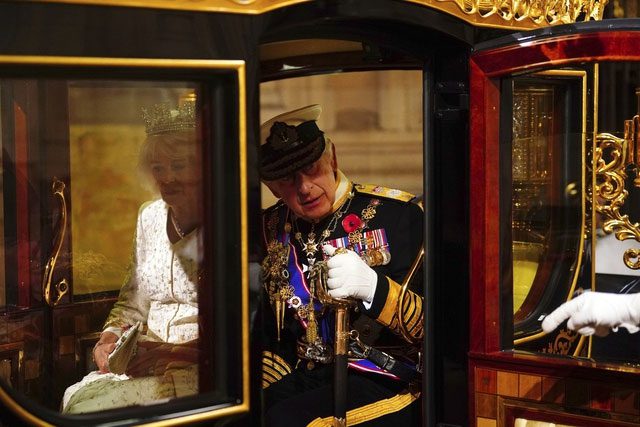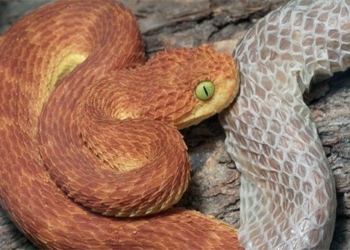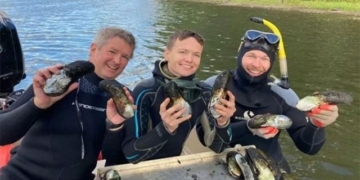The tradition of kidnapping an MP when the King of England arrives at Parliament dates back to the 17th century and was reenacted on November 7.
While King Charles III delivered a speech at the UK Parliament on November 7, a peculiar tradition was reenacted as the royal family had to kidnap an MP as a hostage to ensure the King’s safe return.
The ceremonial speech lasted over 10 minutes, prepared by the office of UK Prime Minister Rishi Sunak, and addressed the government’s legislative plans for the upcoming year, according to AFP.
One of the ceremonial procedures involves the British royal family holding an MP as a hostage during the King’s visit to Parliament.

King Charles III and Queen Camilla arrive at Parliament on November 7. (Photo: AP).
According to the Daily Mail, this unusual procedure originates from the 17th century and is related to the balance of power between the monarchy and the government.
In theory, the monarchy is not involved with the legislative body of the United Kingdom, but this has not always been the case. In 1629, King Charles I did not allow Parliament to convene, leading to a gap of 11 years.
When Parliament reconvened after more than a decade, King Charles I entered the House of Commons seeking to arrest five MPs. His attempt to consolidate power failed, and after the English Civil War, he was convicted of treason and executed in 1649.
Since then, the King of England has only entered Parliament on the condition that an MP is taken hostage. In theory, this means that if anything were to happen to the monarch while in Parliament, the hostage would face the same fate.
The hostage MP is typically the Deputy Lord Chamberlain. This position is currently held by MP Jo Churchill, although there has been no official information regarding her being made a hostage during King Charles III’s visit to Parliament on November 7.
The BBC quoted former Labour MP Jim Fitzpatrick recounting his experience as a hostage in the royal palace. At that time, the Lord Chamberlain invited him for a drink while two others watched the event on television.
“He made it very clear that I could do anything I wanted in Buckingham Palace. I could wander around, have drinks, coffee, or watch television with him. They didn’t actually lock me up, but it was made very clear that I wasn’t allowed to leave,” he recounted.




















































